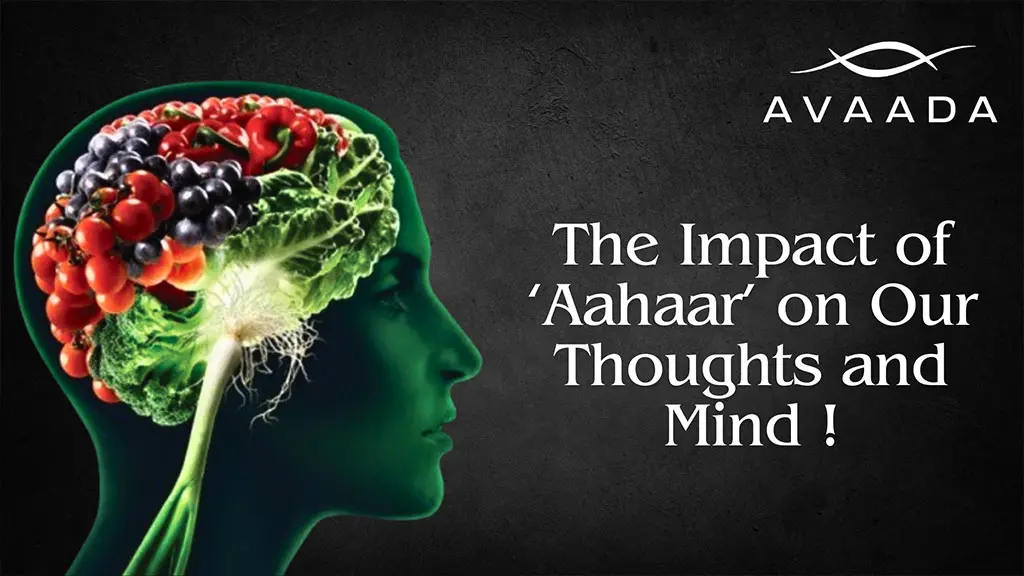A recent article in The Economist inspired me to explore how food impacts both the mind and body, illustrating that what was once considered folklore in Bharat is now being validated by scientific research. Nutritional psychiatry investigates how our diet affects brain function, mood, and mental health. The brain, being the most energy-demanding organ, has specialised nutritional needs.
Ancient Wisdom: Jaisa Ann, Taisa Mann
In Indian homes, a saying passed down from our grandmothers is “Yathaa Aahaar, Tathaa Vichaar,” or in Hindi, “Jaisa Ann, Taisa Mann,” which translates to “As the food, so the mind.” This phrase reflects a holistic view of intake, encompassing everything we consume through our senses—vision, sound, taste, smell, and touch. This ancient wisdom highlights the profound influence of our intake on our mood and mental state. Modern science, particularly through the emerging field of nutritional psychiatry, is now validating these insights.
Aahaar: A Holistic View
For ages, the Indian diet has been rich in fresh, wholesome foods, providing necessary nutrients for optimal brain function. According to Ayurveda, food significantly impacts our health and well-being. The three Gunas—Sattva (virtue), Rajas (passion), and Tamas (ignorance)—characterize the qualities of food:


Sattvic Food:
Promotes purity, clarity, and calmness. These foods, such as fruits, vegetables, whole grains, nuts, pulses, and honey, are easy to digest, provide energy and mental clarity, and lower blood pressure.


Rajasic Food:
Stimulates activity, restlessness, and passion. Foods rich in spices, high in sodium and fat, such as chocolate, chilies, coffee, and certain vegetables, can make the body lethargic and agitated, sapping energy and impacting health negatively.


Tamasic Food:
Leads to lethargy, confusion, and inertia. Heavy, difficult-to-digest foods like processed items, sugar, and certain pungent vegetables can make one feel lethargic and dull.
The Environmental Impacts of Food and Diet
Our food choices also have a profound effect on the environment. Industrialized agriculture, reliant on chemical pesticides and fertilizers, pollutes waterways, reduces soil health, and increases greenhouse gas emissions. Intensive meat production contributes to deforestation and water scarcity. To nourish both our minds and our planet, we can adopt a more conscious approach to Aahaar:
- Embrace a Plant-Based Diet: A United Nations report highlights that adopting a plant-based diet can significantly reduce carbon footprints, mitigate climate change, and improve health. Diets rich in fruits, vegetables, whole grains, and legumes reduce the consumption of meat and processed food.
- Reduce Food Waste: Nearly one-third of food produced worldwide is wasted. Reducing food waste can decrease landfill methane emissions and conserve resources.
- Select Seasonal and Local Produce: Eating seasonal and locally grown food reduces the carbon footprint of food storage and transportation and supports local economies and farmers.
- Be Mindful of Packaging: Excessive packaging often ends up in landfills. Opt for loose fruits and vegetables, buy in bulk when possible, and use reusable shopping bags.
The Science Behind Nutritional Psychiatry
Nutritional psychiatry explores how diet affects brain function, mood, and mental health. The brain, being the most energy-demanding organ, has specialized nutritional needs. Key findings in this field include:
- Amino Acids: Tyrosine and tryptophan are essential for producing neurotransmitters like dopamine and serotonin, which regulate mood and feelings of pleasure.
- Vitamins and Minerals: Nutrients such as folate, vitamin C, vitamin B6, iron, phosphorus, and calcium are crucial for brain function and mood regulation.
Bridging Ancient Wisdom and Modern Science
The convergence of Ayurvedic principles and modern nutritional psychiatry offers a comprehensive understanding of the “Jaisa Ann, Vaisa Mann” philosophy. By acknowledging the importance of a balanced diet and holistic intake, we can improve our mental and physical well-being.
Practical Applications
- Mindful Eating: Emphasize fresh, natural, and minimally processed foods.
- Balanced Diet: Incorporate elements of Sattvic, Rajasic, and Tamasic foods in moderation.
- Holistic Lifestyle: Complement a balanced diet with practices like meditation, yoga, and ethical living to support overall well-being.
Our ancestors’ wisdom, encapsulated in “Jaisa Ann, Vaisa Mann,” is being validated by modern science. By understanding and applying these principles, we can foster better mental health and overall well-being. Sharing this knowledge with family and friends can help everyone benefit from the profound insights of our cultural heritage and the latest scientific discoveries.
By making conscious choices about what we consume, we can cultivate a vibrant and sustainable world—both within ourselves and on our planet. It is time to redefine Aahaar to encompass a mindful approach to everything we intake, fostering not just a healthy mind but also a thriving environment for generations to come.
#JaisaAnnVaisaMann #NutritionalPsychiatry #MindfulEating #Ayurveda #SattvicDiet #PlantBased #SustainableLiving #MentalHealth #AncientWisdom #ModernScience #HealthyLiving #EnvironmentalImpact #HolisticHealth #WellBeing









